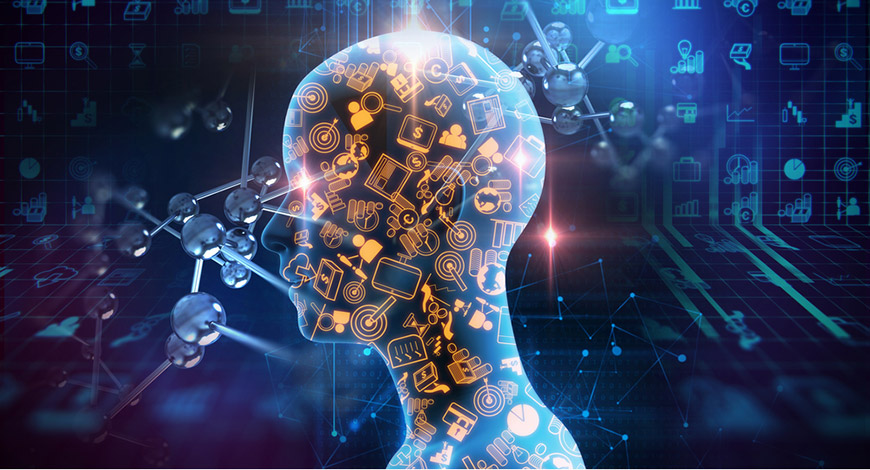Given their scope in future, the scientists have now started focusing on incorporating Deep Learning and Natural Language Understanding (NLU) in AI to allow machines to ‘genuinely understand and respond’ like humans.

The Hollywood flick ‘Blade Runner’ released in 1982, depicted human-like androids which were programmed with awareness of their own artificiality. They evolved to an extent where their intelligence reached akin to their human counterparts.
Back home in India, Rajnikanth-starrer ‘Robot’ showed how a robot created to understand and show emotions takes over his creator in terms of intellect and power, and becomes homicidal. That was in 2010.
Circa 2017. Sophia, a humanoid robot was granted citizenship by Saudi Arabia. She can learn from experiences and apply that knowledge to comprehend situations. Then, there is little Nao robot which teaches children with autism, helps with research and works at hospitals. These AI-powered robots are not works of science fiction, rather a stark reality of today and future.
In the next 15-20 years, the world will witness robots driving cars, fighting on the battlefront along with soldiers, providing paralegal assistance, working on farms, and even joining bomb squads!
A lot is being said about Artificial Intelligence (AI). As usually the case is, there are two schools of thoughts – one thinks that AI will make the lives of people easier like computers and other technologies did whereas the other one strongly believes that AI is a threat to the human race. The legendary scientist Stephen Hawkins has predicted that AI could spell the end of the human race and is the worst event in the civilization.
The biggest threat that AI poses is the loss of jobs. According to the Davos study, the rise of AI and robots is expected to wipe out 5.1 million jobs in 15 countries in the next five years. However, AI-supporters argue that this technology will replace monotonous, mundane tasks to enable humans to focus on jobs that demand creativity, emotions and strategy. In fact, a PwC report findings point out that AI will ease the burden of repetitive, menial tasks such as paperwork (82%), scheduling (79%), and timesheets (78%).
Given their scope in future, the scientists have now started focusing on incorporating Deep Learning and Natural Language Understanding (NLU) in AI to allow machines to ‘genuinely understand and respond’ like humans. Alexa, Google Assistant and Siri are examples of this. Look at Sophia, she can hold conversations with you! Recently, OpenAI research lab, co-founded by the famous technology entrepreneur Elon Musk, has developed a virtual world where AI-robots literally wrestle with each other to compete, learn with trials and errors, pick up skills and become more intelligent. Prior to that, the video footage released by Google about its DeepMind AI teaching itself to walk, jump, run and climb by overcoming obstacles was nothing less than creepy.
The point that is being driven home here is that AI machines are being trained to think. So, it doesn’t come as a surprise that people have started debating whether our dependence on AI will increase so much that we will stop using our brains altogether. Well, the technologists behind the development of AI may not agree, but it is not completely an unreal concern.
If there is a robot who could teach music or sports, write breaking news and articles, or invent recipes, why would we need teachers, journalists and chefs? People will buy such robots from the market, use them as per their convenience and store them in the cupboards when not required. Who knows even the said professionals will themselves prefer to use AI to make their work easier instead of making their natural intelligence do the job!
In May this year, Google’s DeepMind’s AlphaGo AI officially beat the world’s best player Ke Jie in the Chinese board game ‘Go’. How AlphaGo did it is still a mystery that its developers and the champion himself are unraveling. So, if machines can think smarter and quicker, why at all there is a need for humans to trouble their intellect? If we start depending on machines to solve every problem, we won’t need a reason to learn new skills or put our emotional and cognitive intelligence to use.
Fortunately, the human race has not reached a stage (and, hope that it will never!) where there will be a trade-off between AI and natural intelligence. As far as the threat of AI and robots going crooks and taking the control of world is concerned, it looks highly unlikely. The real world complexities are too challenging for this technology to think on their own. Secondly, it is the man who has the natural ability to ‘think’ has made the machines to ‘think’. If men know how to make AI powerful, they also know how to weaken it. Perhaps, that’s why scientists are already developing a ‘red button’ or a ‘kill switch’ that will prevent AI machines to function at their will!
Our natural intelligence is still safe with us. Well, as long as we don’t lend it to machines.
Published on BWDisrupt